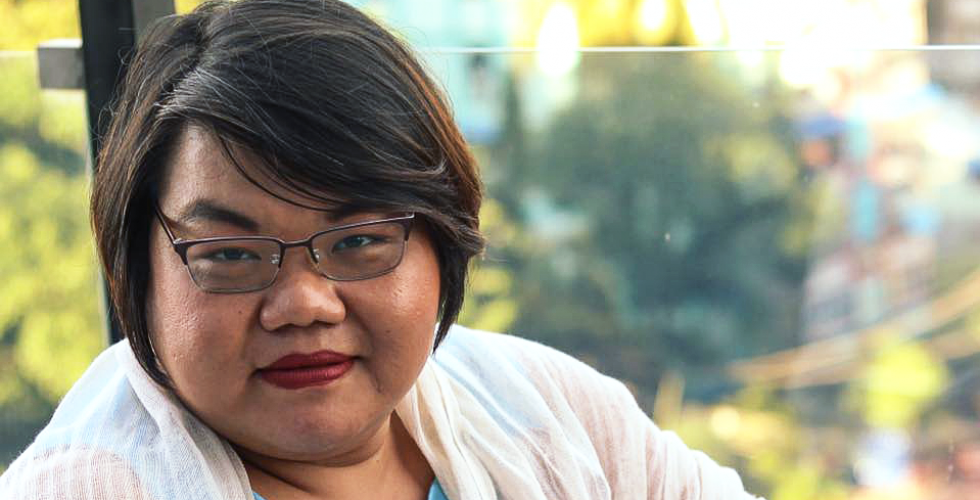
Limited opportunities for LGBTQI people in Myanmar
Myanmar’s first democratically elected government was installed in 2015. Five years later, a coup d'état shattered any hope of a Burmese democracy. RFSL has talked to democracy and LGBTQI activist Yaya Aye Myat about the current situation.
Myanmar in Southeast Asia has nearly 60 million inhabitants. The country is a former British colony that became independent in 1948. Since the country’s independence, conflicts between different ethnic groups and recurring coups d’état has characterised its history. After over 50 years of military rule, Myanmar got its first democratically elected government in 2015, but in February 2021 the military again seized power.
Almost half of the world’s 69 countries where same-sex sexual acts are illegal are former British colonies. Same-sex sexual acts have been illegal in Myanmar since 1861 through section 377, which is a sodomy law from colonial times. The law silences LGBTQI people and makes it hard to live openly. Another inheritance from colonial times is an abortion law that only allows for abortion to save the pregnant person’s life.
However, something unique to Myanmar is the addition to the abortion law that was made in the 1960s by the military dictatorship. The addition makes it illegal to, regardless of gender, sterilise oneself. Without the state’s permission, sterilisation can lead to three years of imprisonment. The person doing the procedure also risks three years of imprisonment. Today, this law is used to limit trans people’s access to gender affirming care, says Yaya Aye Myat, which is interpreted as a kind of sterilisation.
– In other countries there are slogans like “my body, my rights”, but we can’t say that here. Our reproductive organs are owned by the state, concludes Yaya.
Apart from the legislation that criminalises LGBTQI people, LGBTQI people are subject to extensive discrimination. There’s no hate crime legislation or protection against discrimination. There is discrimination at every level of society; within education and healthcare as well as in the family. The oppression has serious consequences for LGBTQI people’s mental health and limits their opportunity to provide for themselves.
– As a trans woman or homosexual your career options are limited. You can become a make-up artist, florist or sex worker, but never a teacher, doctor or engineer, explains Yaya.
The security situation is another challenge for LGBTQI people in Myanmar. Sexual harassment and molestation is common, especially during arrests. Torture is also common in interrogations. Through the police law, trans people can be arrested for expressing their gender identity openly, since the Burmese judicial system interprets this as a form of concealment for the purpose of committing crime. This law is used especially to harass trans activists.
– The police can arrest me at any time and accuse me of being in costume. I have been “in costume” for ten years already, since my transition, says Yaya and laughs.
Even though LGBTQI people always have been subject to violence in Myanmar, the situation has deteriorated significantly since the military coup earlier this year. Yaya believes that torture and sexual molestation is becoming more common. It has also become more difficult to do all forms of advocacy work. Currently, health issues, such as HIV prevention, are among the only issues the activists can or dare advocate.
– Neither before the coup did LGBTQI people have the right to marriage and such things, but it was at least possible for us to do advocacy work and discuss these issues.
However, all is not dark. Yaya describes how the acceptance of LGBTQI people has increased in the population, because, among other reasons, LGBTQI activists have been active in the protests against the military dictatorship. Another progress is that it, as of December this year, has become allowed to measure trans people’s hormone levels. To gain access to hormones illegally is easy and cheap, but there’s a lack of knowledge about dosage. Overdosing might lead to side effects such as atrial fibrillation and in some cases paralysis. Therefore, it’s important that hormone treatment is followed up by medically trained staff, which will now be possible.
Yaya was invited by RFSL to the Swedish Human Rights Days in Göteborg at the beginning of December. She participated in a seminar about the connection between the LGBTQI and the democracy movement in Myanmar. There are several common denominators, for example, Yaya says, that an important tool for both movements is documents and conventions on human rights. She emphasises that international laws and conventions are a useful point of departure, especially in countries where the laws are dated and lack anchorage in the international system. Right now, activists on the spot are fighting for Myanmar’s ratification of the UN Covenant on Political and Civil Rights, among other things as a way of bringing about free elections or being able to demand rights connected to health. In the future, the convention could also be used as a basis for demanding LGBTQI people’s rights, for example the right to same-sex marriage.
– We plan to use the convention as a point of departure to demand our rights, says Yaya.
